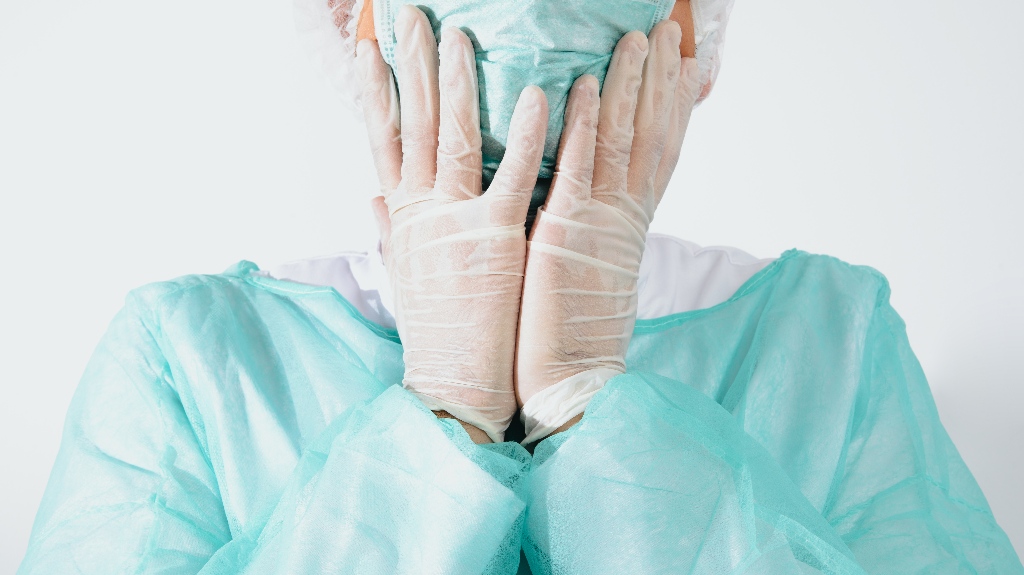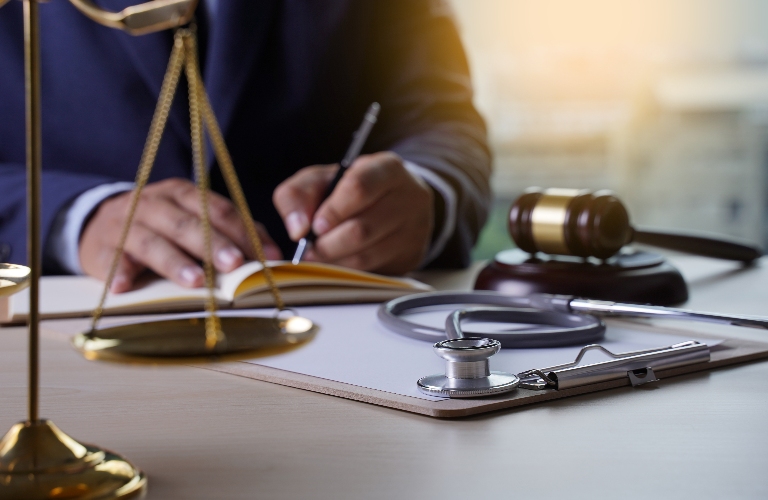
Surgery is supposed to make you feel better, not worse, but when a mistake occurs in the operating theater, the consequences can be disastrous. If you or a family member were injured due to a surgical error, contact a skilled medical malpractice attorney in Alexandria, VA who knows the law and is ready to advocate for you.
At Hollingsworth Law, our Virginia medical malpractice lawyers proudly represent victims of medical negligence in Northern Virginia and will fight to get you the financial compensation you need for your injuries and other damages.
Common Surgical Errors in Virginia
Every day, tens of thousands of surgeries are performed in the United States, and sadly, that means every day, patients are also being subjected to surgical negligence. The Virginia medical malpractice lawyers at Hollingsworth Law regularly represent victims of Virginia’s most common surgical errors, including:
Wrong Body Site/Wrong Patient
Wrong-patient or wrong-site surgery is a medical error that happens when a medical procedure is performed on the wrong body level, body part, or patient. This can sometimes occur when simultaneous procedures are scheduled, and the surgical team is mistaken about which patient is in which theater, leading the operating surgeon to perform the right surgery on the wrong patient or the wrong part of the body.
Incorrect Procedure
Wrong procedure errors are part of the same group as surgeries performed on the wrong patient or the wrong part of the body, often called WSPEs. These mistakes can happen when a surgeon operates on the wrong person, the wrong body part, or performs a surgery that wasn’t needed.
Retained Objects
Retained objects, such as surgical instruments or surgical items, can lead to serious internal injuries in patients. Any tools, instruments, gauze, or medical devices that are left behind, even accidentally, can be grounds for a medical negligence claim in Virginia. Surgical sponges are the most frequently retained foreign objects during medical procedures.
Anesthesia Errors
Patients are informed of the risks inherent in receiving anesthesia, but no one ever thinks that they will be the one to have a problem. Some of the most common forms of anesthesia errors include medication errors in dosages, oversedation, lack of monitoring, improper intubation, oxygen deprivation, and poor communication about the surgical patient.
If you underwent the wrong-site surgery, experienced a post-operative infection, or endured another type of surgical error, a Virginia medical malpractice lawyer can help.
What is a Medical Never Event?
A never event is a medical error that is never supposed to happen. These events are both preventable and identifiable, and often end in disability or death. There are seven types of medical never events. They are:
- Surgical or procedural mistakes
- Equipment or device failures
- Patient safety or protection issues
- Treatment or care management errors
- Environmental hazards in healthcare settings
- Radiology-related errors
- Criminal acts or misconduct in medical care
Procedural and surgical errors that should never occur include:
- Performing surgery on the wrong body part
- Operating on the wrong patient
- Doing the wrong procedure or surgery
- Leaving surgical instruments or objects inside the patient
- A patient’s death during or right after surgery, despite being otherwise healthy
Are All Surgical Errors Medical Malpractice?
No, not every surgical error constitutes medical malpractice. When an anesthesiologist, surgeon, or another healthcare professional harms a patient through negligence, it is considered malpractice.
In order to count as medical malpractice in Virginia, the error must have been the result of failure to adhere to established protocol, carelessness, or incompetence. If the actions of a doctor or surgeon cause injury by failing to meet the accepted medical standard of care, they can be held liable for the damages they caused.
How Can I Prove Malpractice Was the Cause of My Surgical Error?
To be able to bring your healthcare provider to account, you must prove that:
To prove medical malpractice, you must show that:
- You had a doctor-patient relationship
- The provider didn’t meet proper care standards
- Their actions caused your injury
- You suffered serious harm or losses
Who Can Be Held Liable for Surgical Errors in Virginia?
Multiple parties can bear liability for a surgical error, including the anesthesiologist, the surgeon, and any nurses who assisted with the procedure. In some instances, the surgical center or hospital may also share liability.
If defective medical equipment was a contributing factor, the manufacturer can also be held responsible. We will thoroughly investigate each detail of your surgical error, determine who is to blame, and work to bring those parties to book for their actions.
What Damages Are Available for Virginia Surgical Error Cases?

If you sustain losses due to a surgical error or other medical mistake, you could be eligible to recover damages for:
- Medical expenses for extra treatment or corrective surgery
- Lost income if your injuries prevent you from working
- Physical pain and suffering caused by the mistake
- Emotional distress from the experience
Pursuing a medical malpractice claim for a surgical error can help you get the money you need while holding the at-fault parties responsible.
Talk to a Virginia Medical Malpractice Lawyer Today
If you or a loved one has suffered harm due to a surgical error, you don’t have to face the aftermath alone. The legal team at Hollingsworth Law is dedicated to helping victims of medical negligence pursue justice and the financial compensation they deserve. We will review your case, explain your legal options, and fight to hold negligent healthcare providers accountable for their actions.
Call Hollingsworth Law today at (703) 401-9970 or reach out online to schedule a consultation and take the first step toward securing the recovery you need to move forward.

